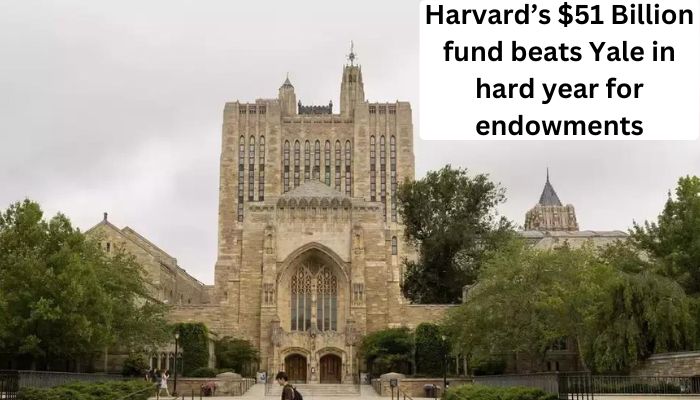Harvard University’s endowment, one of the largest in US higher education, achieved an investment return of 2.9% in the latest fiscal year, surpassing Ivy League rival Yale University and many of its peers. However, it fell behind the performance of traditional US stocks. The returns in venture capital and private equity were modest, and after accounting for expenses and gifts, the endowment’s value decreased to $50.7 billion.
Harvard’s performance underscores the overall underwhelming results of major university endowments in the 12 months ending in June. Smaller endowments, which tend to have a heavier focus on US stocks, outperformed larger funds. Harvard’s endowment portfolio comprises just 11% in public equities, with 31% allocated to hedge funds and 39% to private equity, which includes venture capital. Private asset managers were slow to adjust valuations during the fiscal year’s stock market rally. Despite gains in US stock markets, a complete recovery in private valuations is expected to be gradual. N.P. “Narv” Narvekar, CEO of Harvard Management Co., noted that due to the slowdown in exits and financing rounds, it may take more time for private valuations to align with current market conditions.
Harvard emphasized that its endowment’s performance should not be compared to the S&P 500, as the fund is designed to provide perpetual support to the university, and its investments are aligned with the institution’s risk tolerance. In contrast, over the year ending in June 2022, Harvard’s endowment incurred only a 1.8% loss, while the S&P 500 declined by 12%. Among Ivy League institutions, Columbia University was the only one that outperformed Harvard with a 4.7% investment return, whereas Yale University achieved 1.8%. Several elite colleges, including Duke University and the Massachusetts Institute of Technology, reported losses. Despite Harvard’s recent performance, Yale University has excelled in the long term with an annualized return of 10.9%, surpassing Harvard’s 8.2%.
Harvard’s endowment plays a significant role, accounting for 37% of the university’s operating revenue, making it the largest income source for the institution. In the latest year, the endowment contributed $2.2 billion to Harvard’s operating budget, supporting various aspects, including financial aid, faculty, and research. The university concluded the year with an operating surplus of about $186 million. Increased spending was partly driven by rising inflation and higher interest rates. Harvard emphasized the importance of monitoring the pace of operating expense growth, which nearly doubled revenue growth in the most recent year, an unsustainable trend.
In terms of gifts, cash donations to the university declined by 3% to $1.38 billion in the latest year. The share of donations as a percentage of revenue has risen over the long term, reaching 45% in the most recent year, compared to 28% in 1995. Recent criticism of Harvard’s response to the Israeli terrorist attacks has raised concerns about the university’s gift outlook, with two billionaire donors, Idan Ofer and Leslie Wexner, ending their ties with the school.

